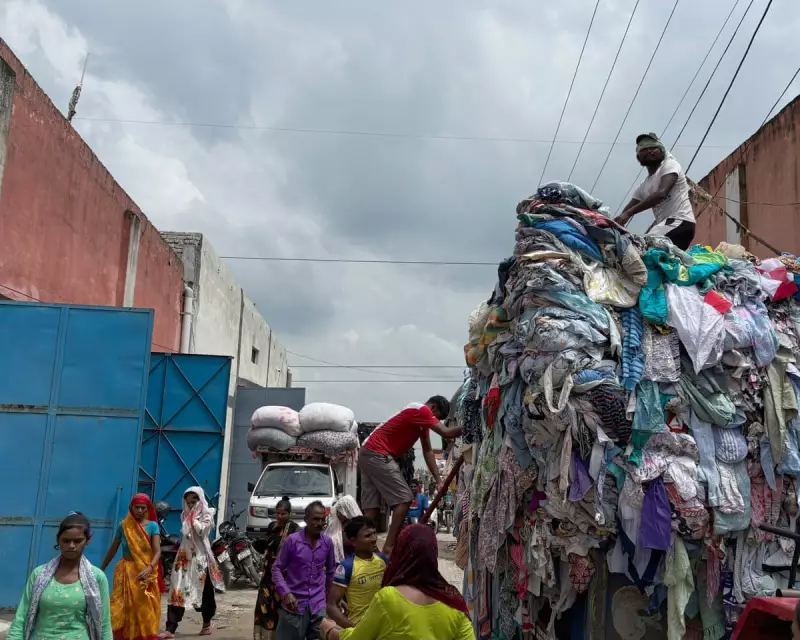
In the industrial heartland of Panipat, northern India, mountains of discarded Western clothing form a colourful yet troubling landscape. This unassuming city has become the final resting place for fast fashion, where garments from British high streets and European boutiques arrive by the tonne to be recycled, repurposed, or simply discarded.
The Human Cost of Fashion's Clean-Up
Workers labour in hazardous conditions, breathing in toxic dust and fibre particles as they manually sort through endless piles of clothing. Many develop chronic respiratory conditions and skin ailments, yet continue working for meagre wages that barely sustain their families.
"We are the hidden cleaners of the fashion industry's mess," one worker explained, his face obscured by a makeshift mask. "The world buys cheap clothes and throws them away without thinking about where they end up or who handles them."
Panipat: The World's Textile Recycling Capital
This industrial city processes approximately 150,000 tonnes of used clothing annually, with much of it originating from Western charity donations and clothing recycling schemes. What cannot be resold often finds its way here, where it's downcycled into industrial wiping cloths or low-quality yarn.
The reality challenges fashion brands' sustainability claims, revealing how circular economy initiatives often simply shift the environmental burden to developing nations.
Broken System, Broken Promises
Despite international commitments to sustainable fashion, the system remains fundamentally flawed:
- Less than 1% of clothing is truly recycled into new garments
- Workers lack proper protective equipment and healthcare
- The quality of fast fashion items makes recycling economically unviable
- Chemical treatments and fabric blends complicate processing
As one factory owner admitted: "We're trying to clean up a mess that keeps getting bigger. The fast fashion model is incompatible with true sustainability."
A Call for Accountability
Labour rights organisations are demanding that fashion brands take responsibility for their entire supply chain, including the end-of-life phase of their products. They argue that true sustainability must include fair treatment of recycling workers and investment in proper infrastructure.
The colourful mountains of Panipat stand as a stark monument to our disposable fashion culture, challenging consumers and corporations alike to confront the true cost of cheap clothing.





